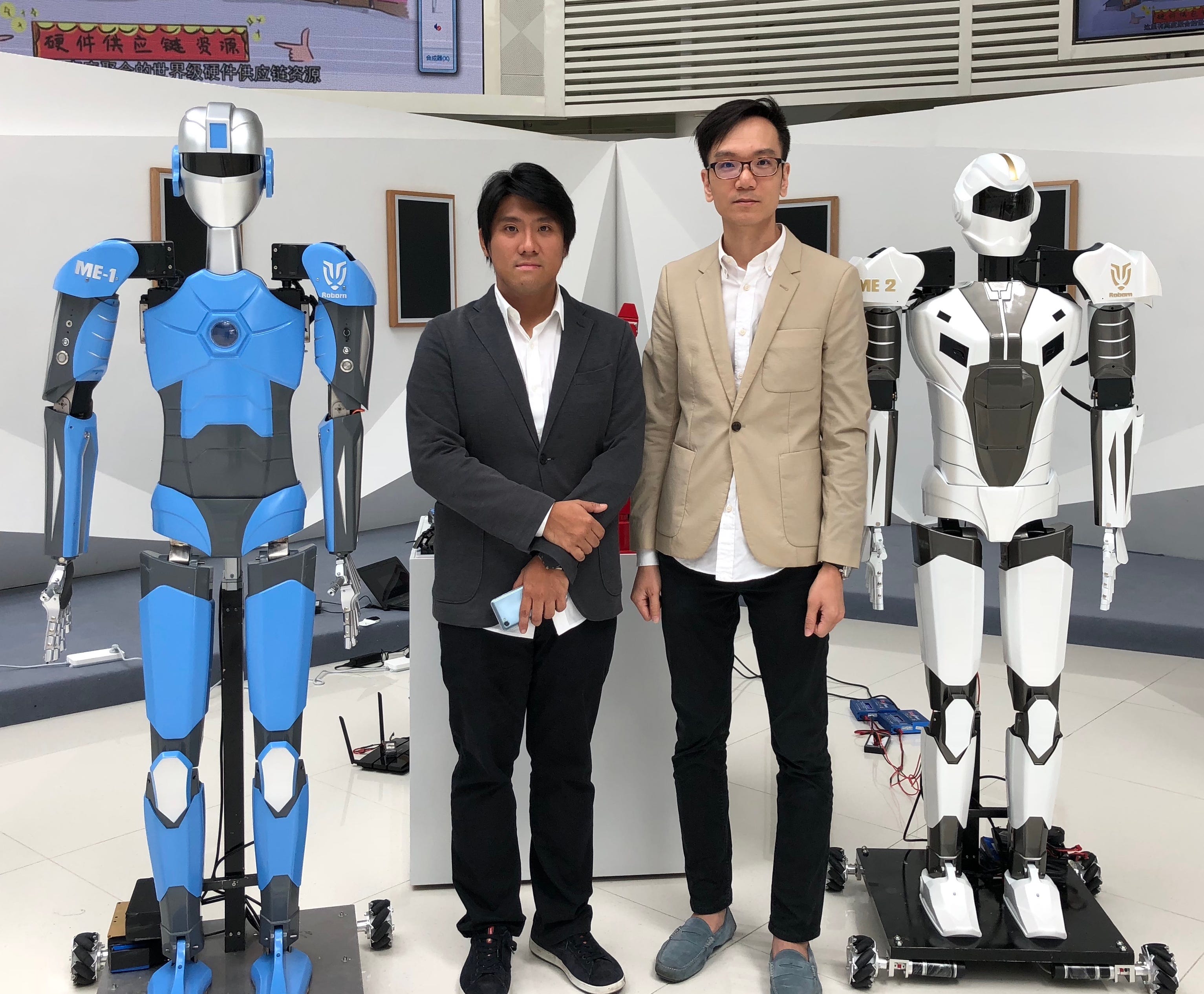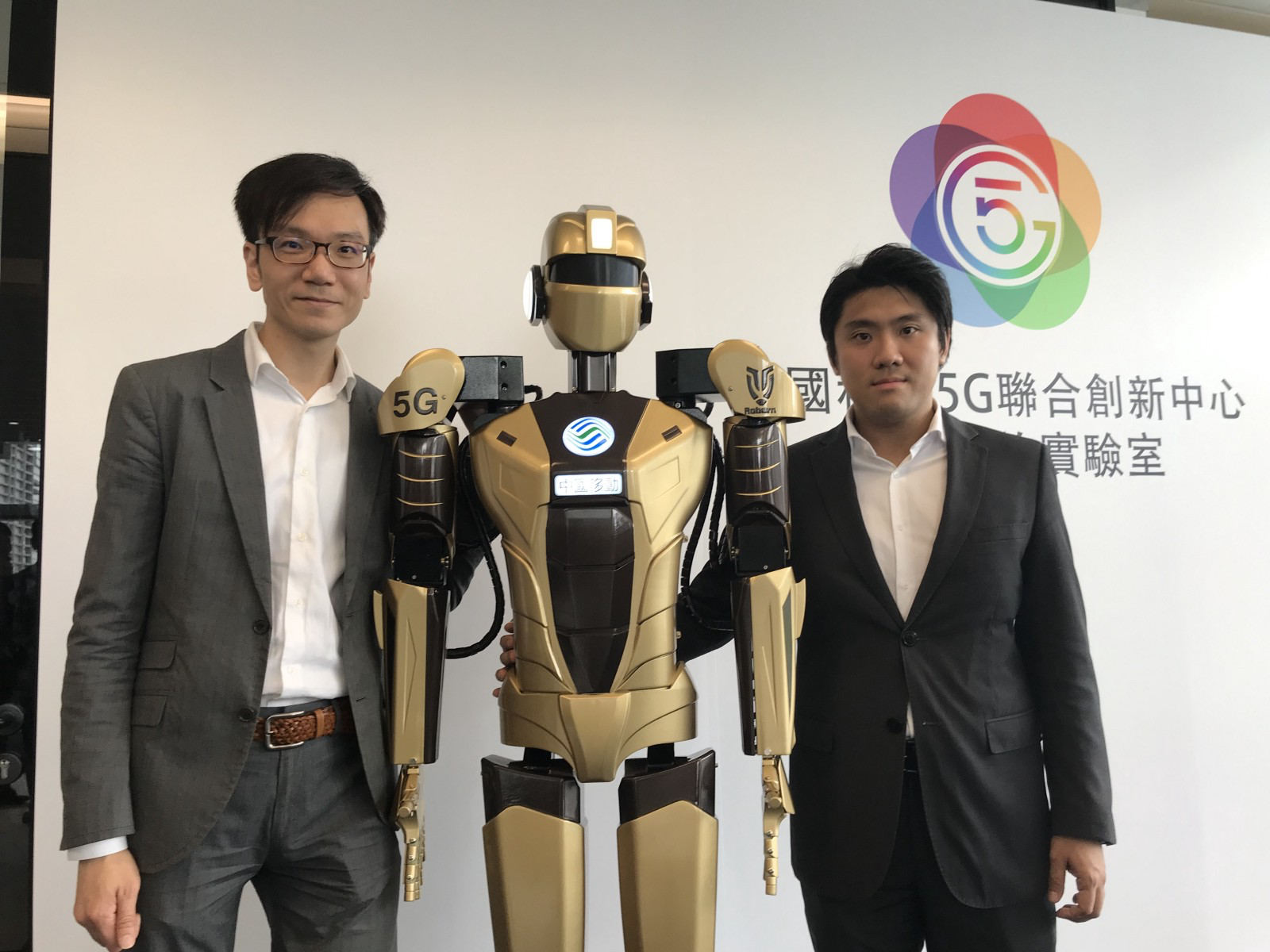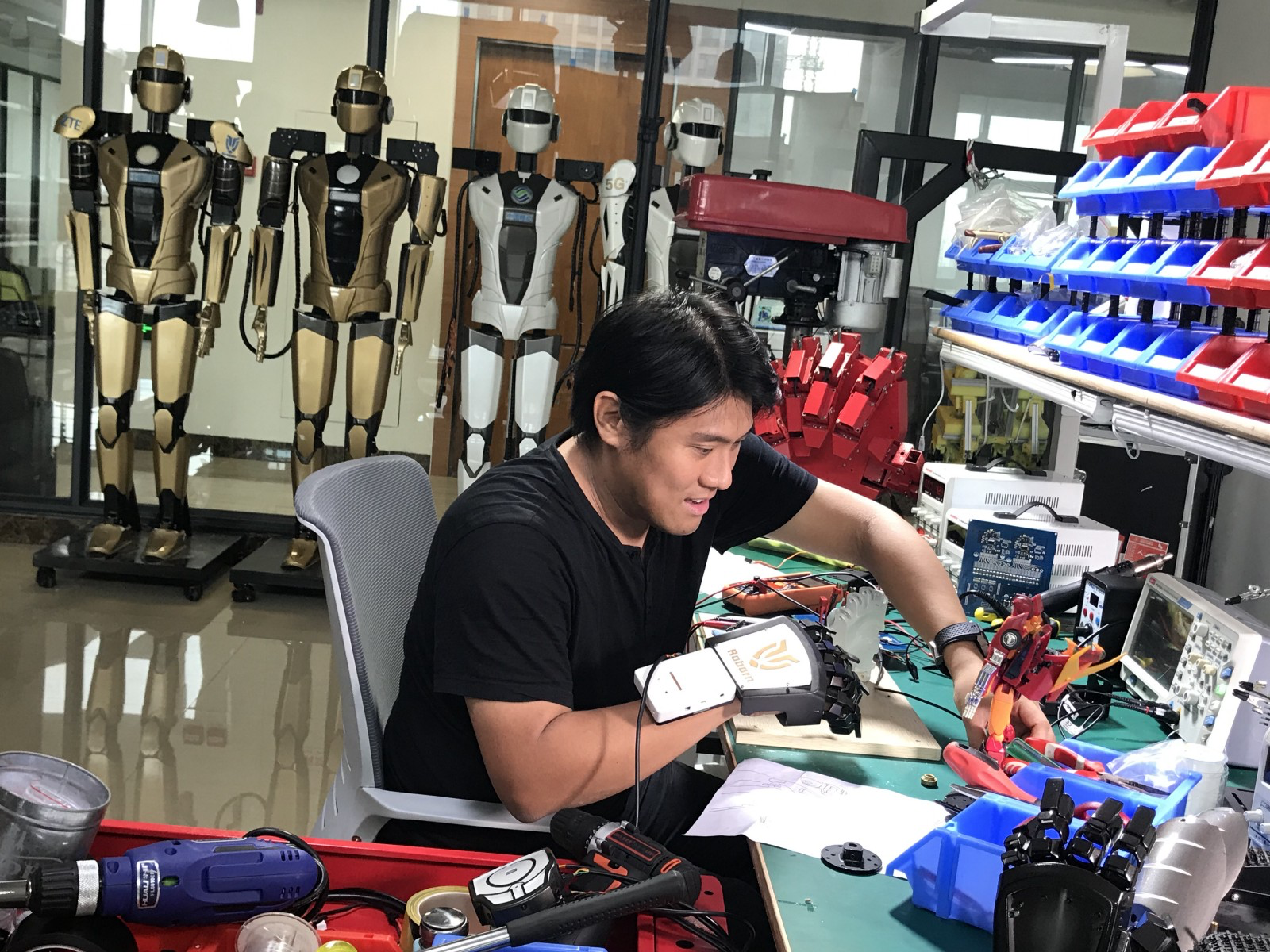Roborn combines the meaning of “Robot” and “Reborn”. It is based on the founders’ concept of a robot that is being reborn by humans. Through motion control, its soul is aroused. Our latest humanoid robot series ME is based on breakthroughs made in motion detection control technology. With this technology we can control the robot freely and easily by simply moving our hands and fingers. Controlling ME, is like controlling a robot in a sci-fi movie.

Whats your story?
I started Roborn in 2017 together with Mr Eden Lu. Mr Lu was my MBA classmate from the Chinese University of Hong Kong. Both of us constantly discussed robots as we were both enthusiasts about the growing robotics landscape. It was from there that we started to form a vision of how we can utilise robots to benefit our society. After going through rounds of business planning, we both made the decision to take the plunge to start Roborn and begin research and development to evolve the ways robotic applications can be applied to the different industrial needs as we attempted to push the boundaries of Robotics Technology.
What were some of the obstacles the team faced building Roborn during its initial years and how did you guys overcome it?
One of the biggest obstacles that we faced was the lack of balance between our work and family. The research and development schedule that we had was extremely tight as we had the deadline of entering the market by the end of our first year. Given that we wanted to be extremely prepared for launch, it has resulted in us having to work extremely late nights and on weekends for weeks on end to complete the tasks that we had. The lack of balance led to us not being able to spend crucial family-bonding time. Despite this, they were still extremely supportive of the work that we do and we are very thankful to them for their understanding. Without their constant motivation, this journey towards building Roborn would have been even more exhausting.

How does your product separate itself from the competitors?
I think at Roborn, we aim to separate ourselves by having technologies that are lightyears ahead of our closest competitors. Roborn’s Robots are controlled by light and tiny controlling devices, allowing the operators to control the robot in a convenient way. Moreover, our robots are designed with state of the art infrastructure to allow it to move and react more “human-like”, which after all is the goal when building humanoid robots.
What are you working on right now that motivates you to get out of bed in the morning?
I think it is the end goal of working to bring our unified vision of getting robots to serve the good of humanity. That vision has given us the purpose to get Eden and I going each and every day. When the going gets tough(where it feels like everywhere we turn, we would meet with a challenge or a problem), we would ask ourselves why do we continue to pursue this and not just take the easy way out to throw in the towel and go back to working at a day job.
In the end, we realize that it is our strong desire and passion to make an impact on this world through the use of robots that gives us that extra “something” to make it through to where we are today. I too have the utmost confidence that this “something” will continue to keep us going despite the risks and uncertainties that we will face in the future!

Do you think there is the chance of humanoid robotics technology being able to advance fast enough to take over the roles of humans in the next decade and displace jobs?
Indeed there is the possibility of that happening. In a recent research from the BBC, the usage of robots will displace up to 20 million labour jobs by 2030, and this does not even factor in the disruption and displacement of other jobs caused by the rise of Artificial Intelligence. Sure it may seem like all is doom and gloom for the future, but if you were to look at the industrial revolution, where people witnessed the rise of automation of many laborious tasks, many newer jobs were created instead of lost, which resulted in higher economic prosperity of the different nations. Without the assistance of such robots, the world would not have gotten to this stage of advancement that rapidly.
The future of work will definitely continue to change due to disruption, and we are already starting to see examples like the rising acceptance of remote working cultures and gig economies (something inconceivable just a decade ago). In this age of disruption, change is the only constant. Hence one has got to stay adaptable and continue to improve and up-skill ourselves to stay relevant or else, we will simply get left behind before we even realise it.

